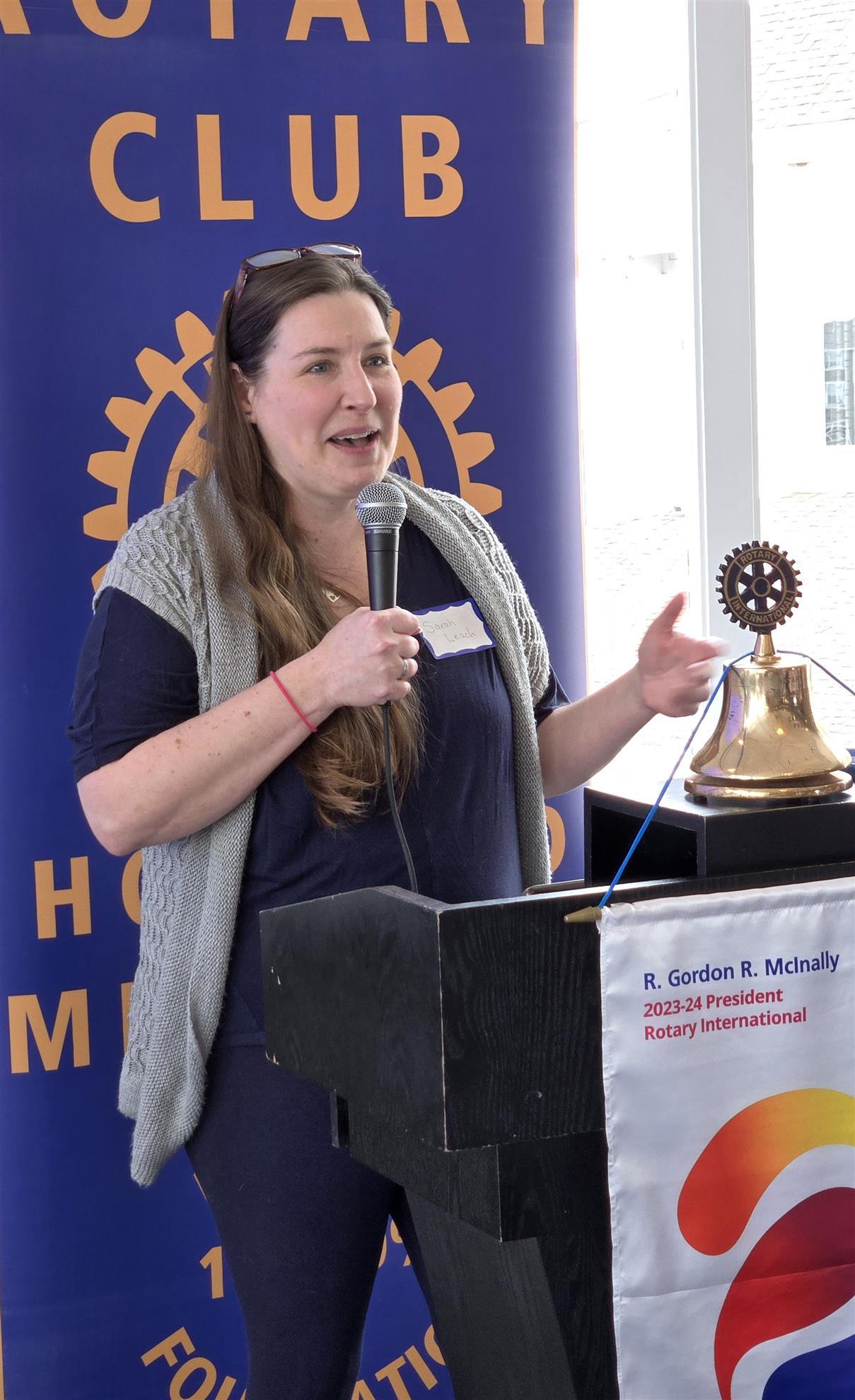How journalism has changed over the years
 Sarah Leach is the Executive Editor of The Holland Sentinel, Petoskey News-Review, Charlevoix Courier, Gaylord Herald Times, Cheboygan Tribune, Sault News, and Ionia Sentinel-Standard. Sarah started by talking about journalism being essential to a functioning democracy. The media is loyal to the citizens and holds power accountable. She quoted Supreme Court Justice Hugo Black from the decision for the New York Times "In the First Amendment, the Founding Fathers gave the free press the protection it must have to fulfill its essential role in our democracy. The press was to serve the governed, not the governors."
Sarah Leach is the Executive Editor of The Holland Sentinel, Petoskey News-Review, Charlevoix Courier, Gaylord Herald Times, Cheboygan Tribune, Sault News, and Ionia Sentinel-Standard. Sarah started by talking about journalism being essential to a functioning democracy. The media is loyal to the citizens and holds power accountable. She quoted Supreme Court Justice Hugo Black from the decision for the New York Times "In the First Amendment, the Founding Fathers gave the free press the protection it must have to fulfill its essential role in our democracy. The press was to serve the governed, not the governors."The press does this by explaining government actions to the public. To do this, journalists must ask questions of all concerned until they understand the issues well enough to explain them. Truth is facts in context and journalists must understand the context. Journalists occupy an interesting position. They are members of the community, but must also view from outside the community.
Journalists are taught consistent methods of testing information for accuracy. As individuals, they have opinions but consistent application of journalistic methods removes bias from reporting.
Changes occurring in media include the following.
- Instant news - Stories can be posted on the internet as soon as they are written.
- Multimedia - News media combines print, video, blogs, podcasts, web pages, and more to report.
- Citizen Journalists - Anyone can create stories on the internet and claim they are a journalist. Some are well-researched and written, some are not.
- Loss of journalists - This is particularly a problem in small markets where the loss of reporting on local events hurts a community.
- Rise of freelance reporters - Full-time employed reporters are declining.
Sarah's recommendations for media literacy include:
- Challenge yourself to a varied news diet. You will understand issues better if you listen to many points of view.
- Encourage media literacy. Citizens need to be able to determine when a reported story doesn't seem plausible.
- Understand reporting methods. Reporters make every effort to contact many primary news sources, but sometimes people refuse to respond and secondary sources must be used.
Sarah was asked about the influence of corporate owners on reporting. She has only worked for newspapers in her career and has never been told to advance a particular viewpoint. However, she pointed out instances where large TV chains have required their news anchors to report the same story.
There was an appreciation that Holland has a local newspaper reporting on local issues. Sarah said that she only has 2 reports to cover everything in a county and a half. The Sentinel also has content-sharing agreements with other newspapers and media. She encouraged everyone to send story ideas because a small staff can miss items of interest to the community.

.png)